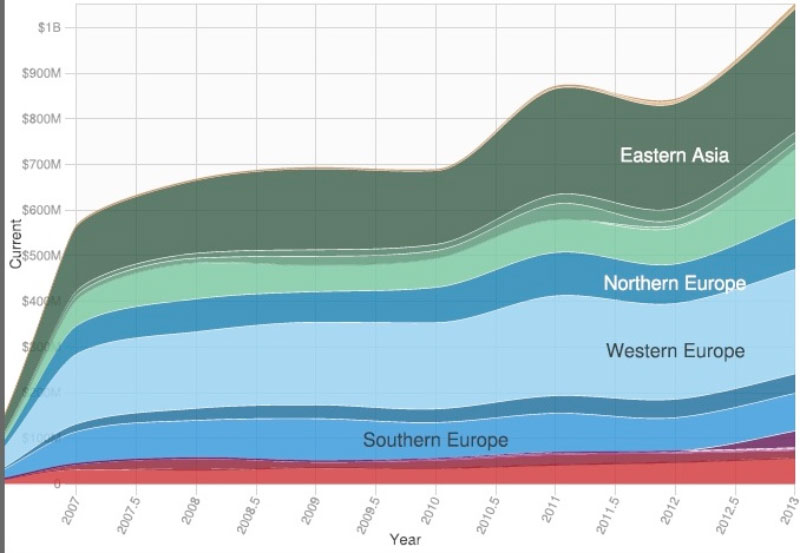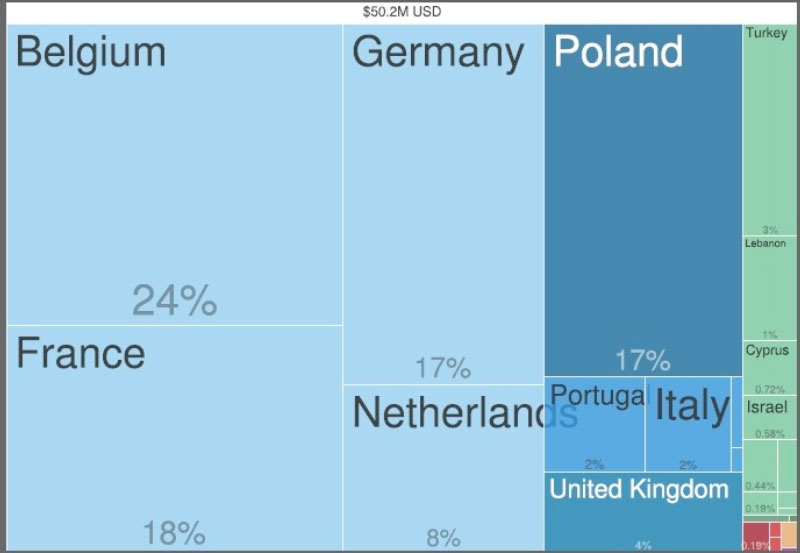WHY CHARCOAL EXPORT?
There is no denying the fact that Charcoal is a cheaper alternative for both domestic and industrial fuel, hence enjoys good demand most especially from the temperate regions of the globe. The technology for producing charcoal from wood has been on going for quite ages. Charcoal is preferred to wood for the fact it is neater, occupies less space and has thermal capacity of 1,700kg/kg which far above that of wood. It actually becomes very popular for the purpose of heating up homes during winter in the temperate regions because it is usually smokeless and it is also used in industries for manufacture of lime and cement, extraction of metal, forging and production of high quality casting and so on.
LOCAL PRICE OF CHARCOAL
Usually, the price for charcoal is between N360-N380 per 50kg bag depending on some factors such as the quality and the sources.
INTERNATIONAL PRICE FOR CHARCOAL
Currently, the international price for charcoal is between $160-$200 per metric tone depending on the following factors such as:
- Quality and regularity of order
- Terms of delivery and payment
- Types of packaging
- Destination
The cry for alternative energy source has put CHARCOAL in the forefront in the global market. A large market exist in EU, USA and ASIA with prices ranging from 200 Euro to 210 Euro per ton (FOB Nigerian Port), depending on mode of packaging. The charcoal industry is a multibillion dollar industry and a money spinner for interested investors. The United Kingdom alone consumes more than 60,000 metric tons of charcoal annually, out of which about 70% comes from tropical Africa. Other countries around the world equally consume charcoal in great quantity.
Charcoal has a seasonal market, but the season differs from one country to another. For instances in Belgium, UK, Holland, France, Germany and Denmark, the Sales season is from May through August because that is their summer time. The Europeans give out their orders from September to May of the following year. In countries like Kuwait, Israel and other Asian countries, it is allyear round and order is placed from January through December.
However, there are some big time importers in Europe who also order all year round. Companies like Big K Charcoal Limited and Diamond Fuel etc, in the United Kingdom order all year round.
CHACOAL SOURCES IN NIGERIA
The sources of charcoal are:
The Savannah Region
- Benue, Kogi State
Rain Forest Zoe
- Epe, Oyo, Iseyin, Ogbomosho , Saki and Igbo-ora
They also have depots in Jebba, Omu Aron, Egbe, Kabba in the Central States.
Charcoal is also found in abundance in Minna, Jos and Kaduna .
CHARCOAL SPECIFICATIONS:
Carbon - 80% min.
Ash - 4% max.
Volatile - 9% max.
Moisture - 8% max.
Burning Time - up to 10 hours
Odourless, Smokeless and Flames.
Charcoal Season : Charcoal has a seasonal market, but the season differs from one country to another. For instance, in Belgium, UK, Holland, France, Germany and Denmark, the sales season is from May through August because that is their summer time. The Europeans give out their orders from September to May. In countries like Kuwait, Israel and some Asian countries, it is all-year round and orders are placed from January through December. However, there are some big time importers in Europe who also order all year round.
MARKET ANALYSIS
The cry for alternative energy sources has put charcoal in the forefront of the global market. A large market exists in EU, USA and Asia, with prices ranging from $170 to $300 per ton, depending on the mode of packaging. The charcoal production industry is a multi-billion dollar industry and a money spinner for interested investors. The United Kingdom alone consumes more than 60,000 metric tons of charcoal annually, out of which about 70% comes from tropical Africa. Germany, Belgium, Greece, the Netherlands, Italy, Poland, Spain, Bulgaria and UK are also substantial importers of charcoal. The total volume of exports from Nigeria cannot satisfy the demand in the European market. Charcoal is mainly produced from tropical hard wood, although there are other sources,
Below is a table which shows the top ten countries importing charcoal as well as the annual growth rate since 2009 indicating the increase in demand of charcoal.
INDUSTRY ANALYSIS
MARKET OVERVIEW
Nigerian Charcoal is exported to 4 different segments based in Europe: the restaurant barbecue market, the steel industry, the pharmaceutical industry, and the industrial fuel industry.
The restaurant barbecue market:
The charcoal is excellent fuel for everyday use such as in char grills, fireplaces and barbecues. Thanks to the low level of the smoke creation and the high heating value, the present type of fuel is an ideal solution for cooking on the open flame.
The steel industry :
Charcoal is a far superior fuel because it burns hotter and has no sulfur. Until World War II charcoal was still being used in Sweden to make ultra high-quality steel. In steel-making, charcoal is not only a fuel, but a source for the carbon in the steel according to some scholars such as Moronda, 2011.
The industrial fuel industry:
charcoal was used in great quantities for smelting iron in bloomeries and later blast furnaces and finery forges.
The Phamarceutical Industry:
Charcoal may be activated to increase its effectiveness as a filter. Activated charcoalreadily adsorbs a wide range of organic compounds dissolved or suspended in gases and liquids. In certain industrial processes, such as the purification of sucrose from cane sugar, impurities cause an undesirable color, which can be removed with activated charcoal. It is also used to absorb odors and toxins in gases, such as air. Charcoal filters are also used in some types of gas masks. The medical use of activated charcoal is mainly the absorption of poisons, especially in the case of suicide attempts in which the patient has ingested a large amount of a drug.[22]Activated charcoal is available without a prescription, so it is used for a variety of health-related applications. For example, it is often used to reduce discomfort (and embarrassment) due to excessive gas (commonly known as a fart or flatulence) in the digestive tract.[23
BELOW IS A DIAGRAM SHOWING THE STEADY GROWTH OF IMPORTS OF CHARCOAL FROM 2007-2013

BELOW IS A CHART SHOWING THE COUTRIES NIGERIA EXPOTED CHARCOAL TO IN 2013
